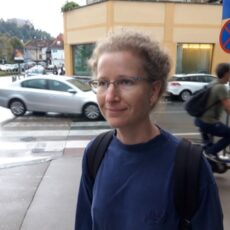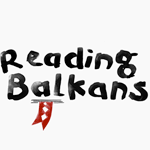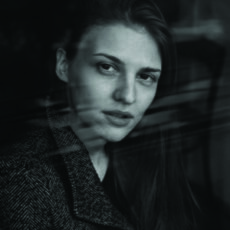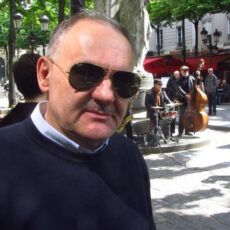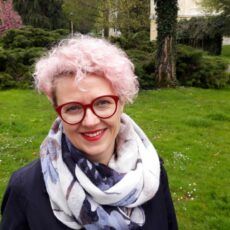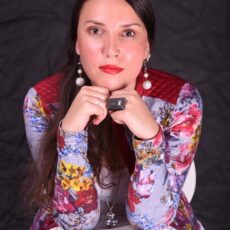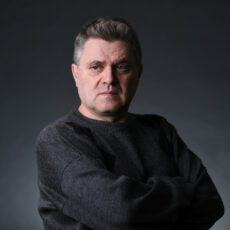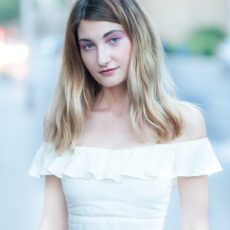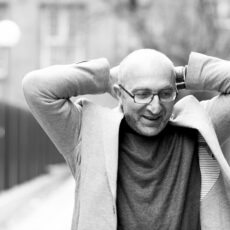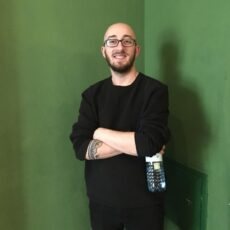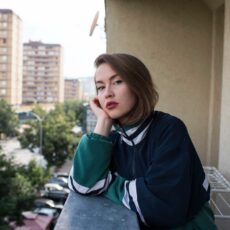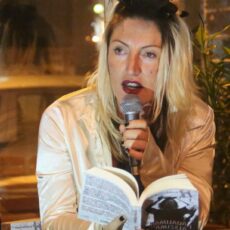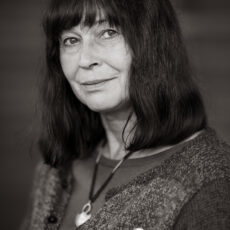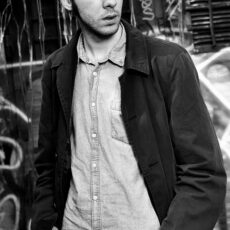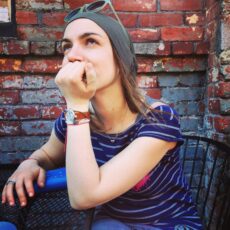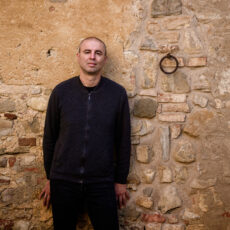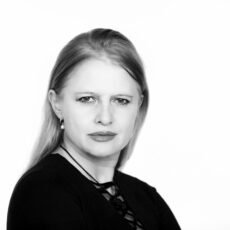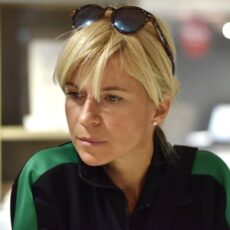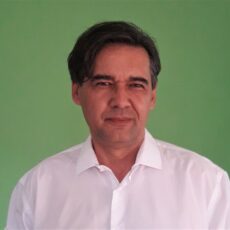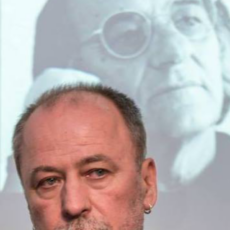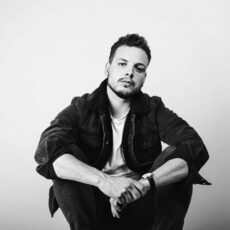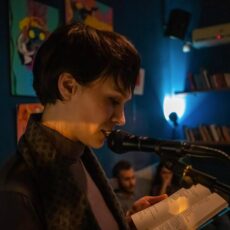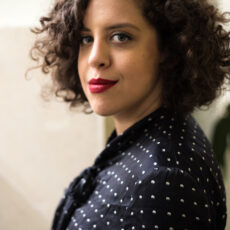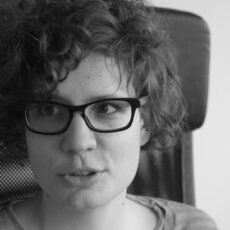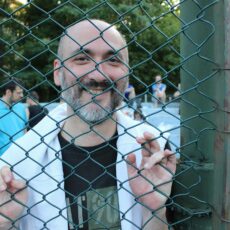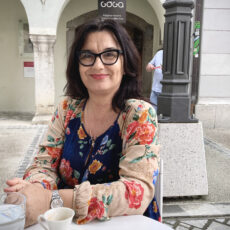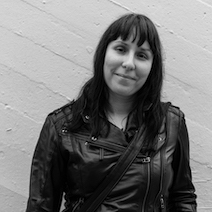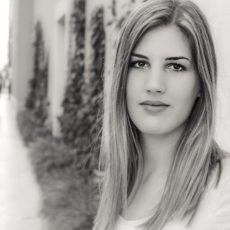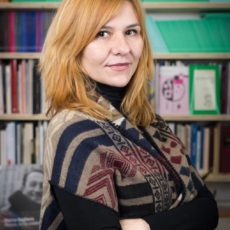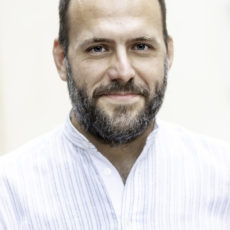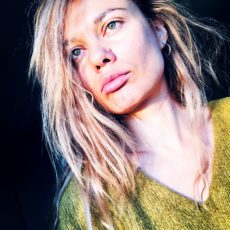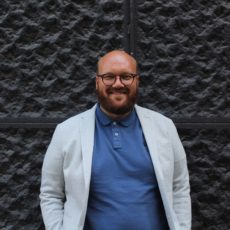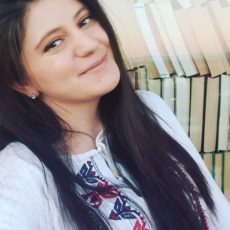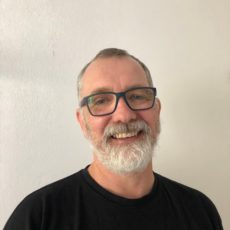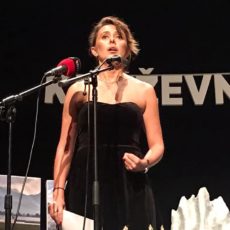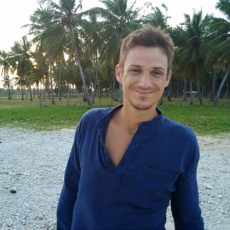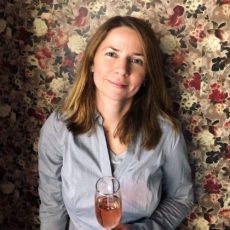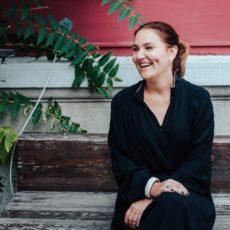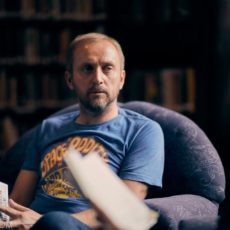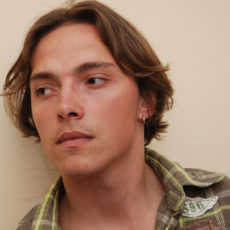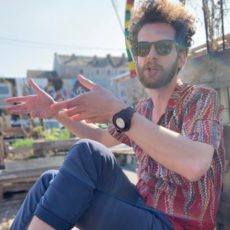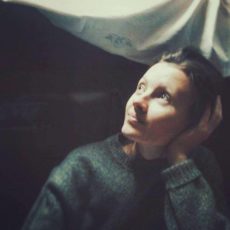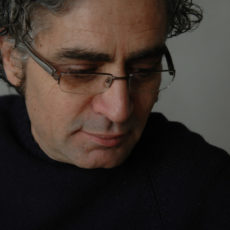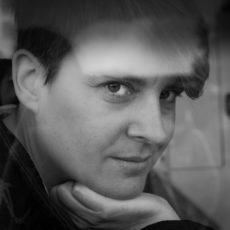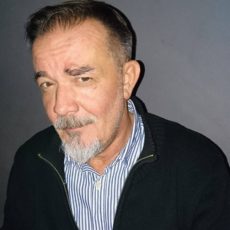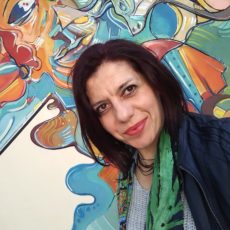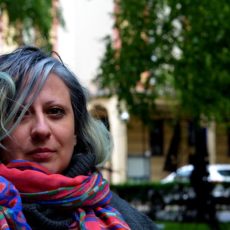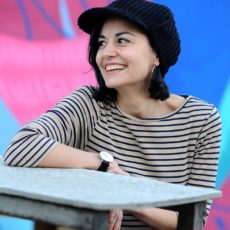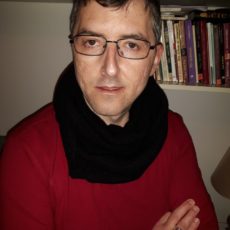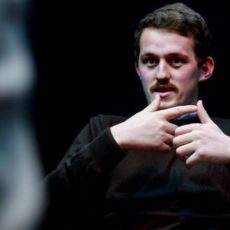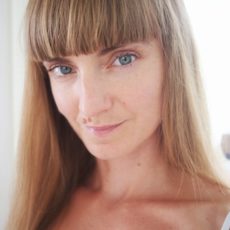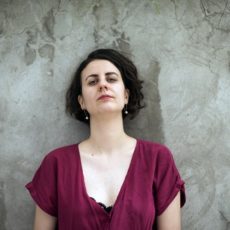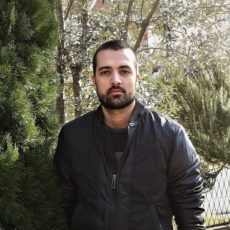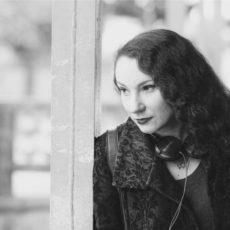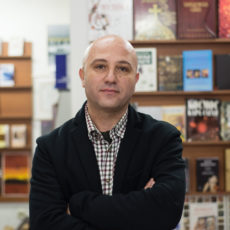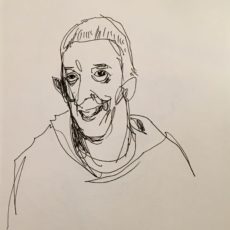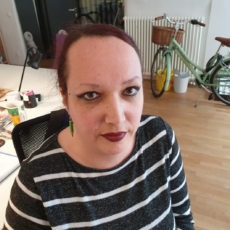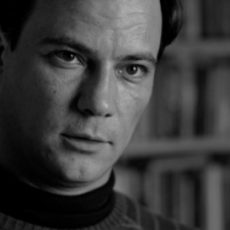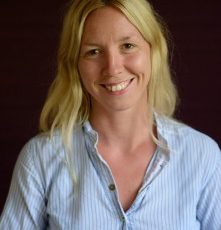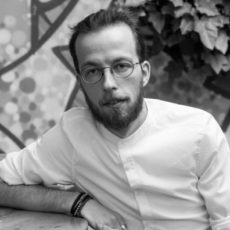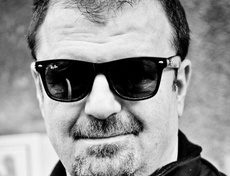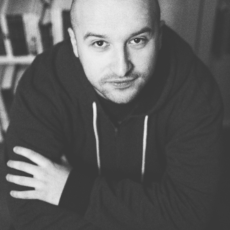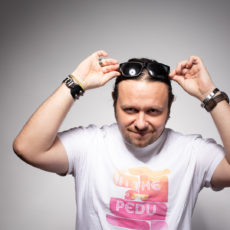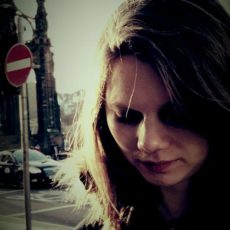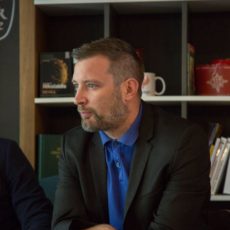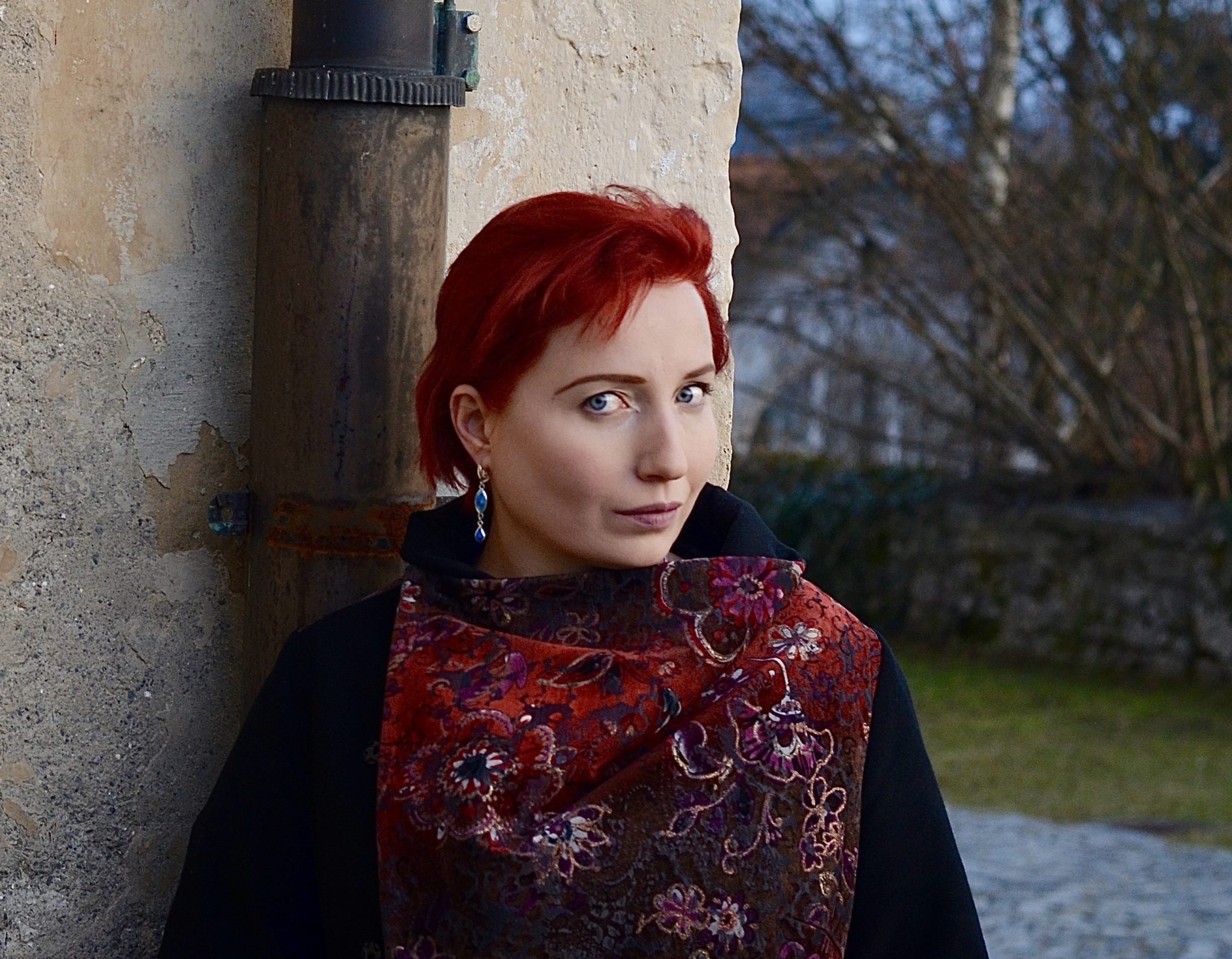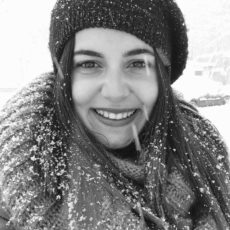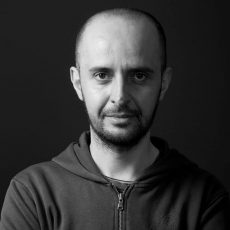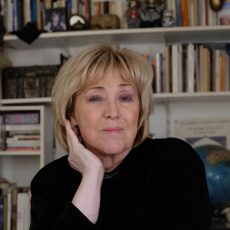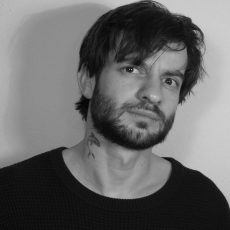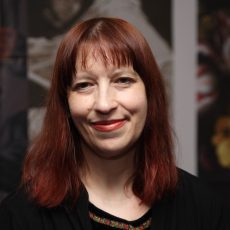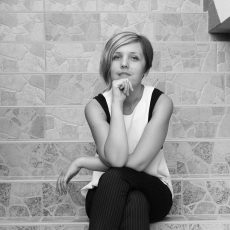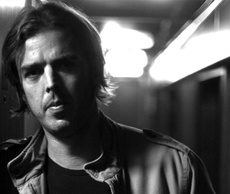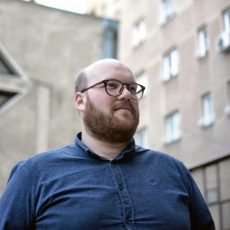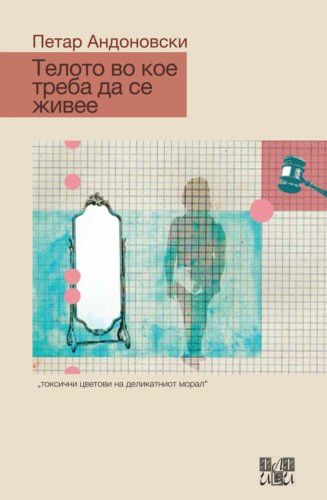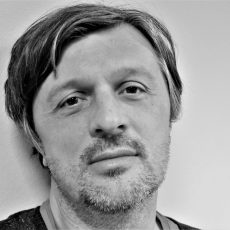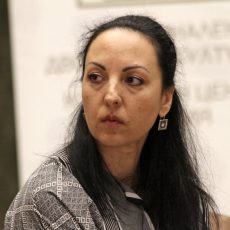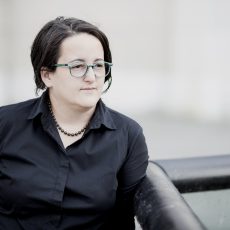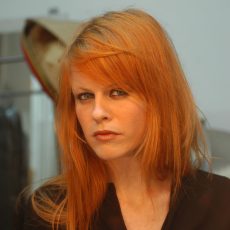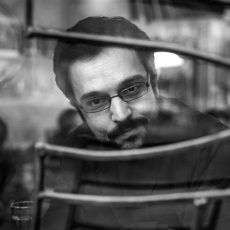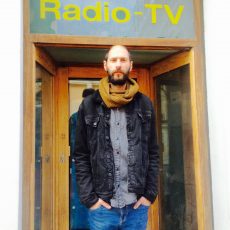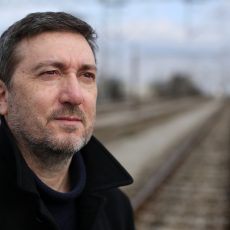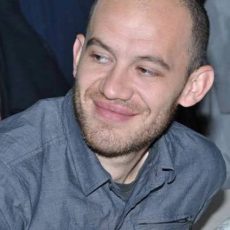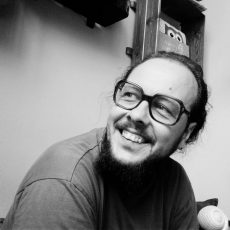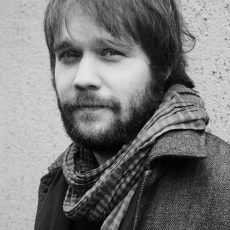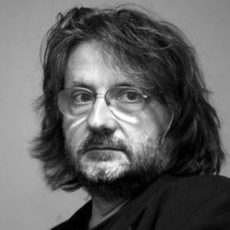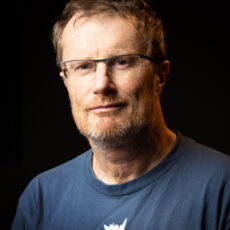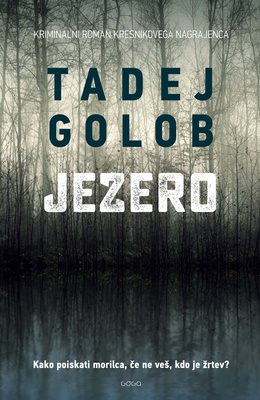Jasmina Topić is a Serbian authoress mainly focused on writing poetry, but she is also established as an occasional short prose and essay writer; literary reviewer; editor/editor in chief of two significant projects. She started a contemporary poetry edition called “Najbolja” (“The Best”) with another poet from her hometown Pančevo in 2012 and is in-charged in (co)editing as well as book design. She cooperates with the Youth Center in Pančevo as editor-in-chief of the publication “Rukopisi” (“Manuscripts”) since 1998 – a collection of young poets and short-prose writers from former Yugoslavia, published annually. Jasmina Topić has six sole-authored poetry books and several stories printed in journals and specialized thematic books (listed below). Furthermore, she has been continually publishing articles, columns and essays for journals (paper and online) throughout the ex-YU region. From 2000 until 2009, she worked as a freelance journalist. Her poems are translated into several languages and she is included in some major selections of the Serbian and ex-Yugoslavian poetry (the latest: Cat Painters, Dialogos, New Orleans, USA, 2017). Her poetry is often presented in a multimedia context and she managed to present it through video-works in a DVD called “The quiet renewal of the summer” (2008) and also with audio CD “Languages of Poetry”, in several languages – prepared for the final exhibition of the AIR program in Graz, Austria (2014) (available on Soundcloud).
Jasmina Topić had the opportunity to be called on a few Artist in residence programs: the “Milo Dor” stipend from KulturKontakt (Vienna, Austria, 2008), Kamov residency (Rijeka, Croatia, 2012), “Tirana in between” (Traduki program, Tirana, Albania, 2013), RONDO residency (Graz, Austria, 2014) and Create in residence (Baltic centre for writers and translators, Visby, Sweden, 2014). At the end of 2019. she was a resident in Krems, Austria, as a part of the writers exchange project between Austria and Serbia.
She won several prizes on literary contests, and two for her poetry/poetry book: “Duškovićeva zvona” (Pančevo, 2002), “Matićev šal” (Ćuprija, 2003 for the book “Pension. Metamorphoses”), respectively. Her latest poetry book “Beach Insomnia” was short-listed for all major poetry prizes in Serbia in 2017.
Major publications
Topić, Jasmina. Plaža Nesanica / The Beach Insomnia. Kulturni centar Novi Sad. Novi Sad. 2016.
(the book was nominated last year as short-listed for three most significant poetry prizes in Serbia: “Vasko Popa”, “Đura Jakšić” and “Milica Stojadinović-Srpkinja” (female poets) )
Topić, Jasmina. Dok neko šapuće naša imena / While Someone is Whispering our Names. UKKPP. Pančevo. 2012.
Topić, Jasmina. Tiha obnova leta / The Quiet Renewal of the Summer. Povelja. Kraljevo. 2007.
Topić, Jasmina. Romantizam / Romantizism. Alfa – Narodna knjiga. Beograd. 2005.
Topić, Jasmina. Pansion. Metamorfoze / Pension. Methamorphoses. Centar za stvaralaštvo mladih. Beograd. 2002.
Topić, Jasmina. Suncokreti. Skica za dan / Sunflowers. Portrait for the Day. Udruženje književnika Pančevo. Pančevo. 1997.
&
Topić, Jasmina, et. al. Čiji grad – književni protest. Kontrast. Beograd. 2016.
Topić, Jasmina, et. al. Grenzverkehr III. A new beginning – but where is it leading?.
Kultur Kontakt & Drava Verlag, Vienna. 2012.
Topić, Jasmina, et. al. Kod srpskog pisca. Službeni glasnik. Beograd. 2011.
Topić, Jasmina, et. al. Leksikon božjih ljudi. Službeni glasnik. Beograd. 2010.
Topić, Jasmina, et. al. Projekat Kortasar. Povelja. Kraljevo. 2002.
_____________________________________
EXAMPLES OF WORK:
first translator: Novica Petrovic (SRB)
second translator: Biljana D. Obradovic (US)
third: author and Lara Jakica (AUS)
order of poems:
Serbian > English
STANARI
Bili smo tihi. Kao one kržljave ptičice
nesvesne ovog sveta.
Još uvek zlovoljni.
Moje telo pored tvog uvek blago dehidrira.
Tvoje telo je mekano i cedim
iz njega svetu vodicu svojih nedostataka.
Vodu koja mi uvek nedostaje.
Mehuri sapunice i mehuri deterdženta,
dva proizvoda sa istog odeljenja, to
smo postigli u traganju za idealom.
Letimo po ovom stanu kao perje
Očerupanih golupčića spremljenih za dobru supu.
Svako za svojim kompjuterom,
U video igrici postiže cilj. Na sledećem sam nivou.
Pregovaramo o Second life-u.
Ko izgubi iznosi parčiće slomljenog
na veliko gradsko smetlište.
Nakon svega znam da ćemo postati još tiši.
Ulegnuće u krevetu raste kao i svako predgrađe.
U taj stan se nismo uselili.
Sve je toplije i uskoro će leto.
LODGERS
we were ljuiet. Just like those tiny skinny birds
unaware of this world.
we are still morose.
My body always dehydrates slightly next to yours.
Your body is soft and I sljueeze
from it the holy water of my shortcomings.
The water that I always lack.
Soap bubbles and detergent bubbles,
two products from the same department, that’s
what we achieved straining to attain the ideal.
we fly around this flat like the feathers
of plucked pigeons ready to be made into a good soup.
Everyone sitting at his or her computer,
achieves his or her objectives in video games. I’ve reached the next level.
we are negotiating on Second life.
The loser gets to take broken fragments
to the great city dump.
I know that when all’s said and done we’ll become even ljuieter.
The dent in the bed grows like any suburb.
we did not move into that flat.
It’s getting warmer and summer will be upon us soon.
KONSTANTNO ISKUSTVO
vse moje izkušwe
grejo naravnost v literaturo
Primož Čučnik
Iskustva iz figurativnog ranca
idu pravo u poeziju
I po kiši dosadnoj i uopšte rečeno groznoj
može se pisati –
Taj maleni napor trošenja hartije,
zagrevanja prstiju
u igri šaha ili solitarea s dosadom,
a i kreativnom besparicom
trenutne odluke
podrazumevaju promišljanje,
naglost, adrenalin (tim redosledom ?!)
kao gledanje sportskog susreta
prebacivanje loptice
to je podgrejani nacionalizam paprikaš
džepni izdavač instant saznawa
pesma je sada gerilac
guram kolica naravno prazna
igram igricu koja bi se takođe i od stiha
mogla animirati
za mladost buduću
tu je pevanje ostalo pred vratima
iskušenje s iskustvom
za stan u koji sutra nećeš moći da uđeš
jer si švorc
Onda muziku ugasiš
jednoličan ritam ambijentalnog haosa
i sitne, sitne, još sitnije kao
pirinač za sirotinju –
Kiša je jedino konstantno iskustvo
koje će upravo postati literarno.
CONSTANT EXPERIENCE
all my experiences
go straight into literature
Primož Čučnik
Experiences from the figurative sack
go straight into poetry
Even in boring rain, which is dreadful generally speaking,
one can write –
This small effort aimed at using paper,
warming up your fingers
playing chess or solitaire with boredom,
and with creative pennilessness
instantaneous decisions
presuppose reflection,
rashness, adrenalin (in that order?!)
watching a sporting event
heated-up nationalism stew
pocket-sized publisher
a poem is now a guerrilla fighter
I push the cart, empty, of course
I play a game that could also be animated
by verse
for future youth
there’s singing left in front of the door
an ordeal involving experience
on account of a flat where you won’t be able to move in
because you’re broke
Then you switch off the music
the monotonous rhythm of ambiental chaos
and tiny, tiny, even tinier, like
rice for the poor –
The rain is the only constant experience
that is to become a literary one.
NE SPAVAM CELU NOĆ
Iz čistog nezadovoljstva. Mislim kako se grad
prepun mogućnosti neprestano sužava.
Nešto malo pre toga, tog predvečerja,
bakuta šeta s štapovima u rukama, samo što ona nije skijaš,
i sneg skoro neće pasti. Nedelja je i nema graje.
Zato je noć idealna za nesanicu.
I dok odmiče… nemam ni časovnik koji će
odbrojavati nezadovoljstvo ili prebrojavati ovčice.
Nasmejem se u gluvo-doba-noći tako da to
niko ne čuje, pa na trenutak zastanem,
da udahnem i izdahnem.
Ne klopara li neko zavojitim stepeništem
i nije li sad već na mezaninu!
Čisto fizičko zadovoljstvo osetim kada jagodice prstiju
dotaknu tastaturu projektovane nesanice.
Kada me već sasvim obavije čista runska vuna postrizanih ovčica
iskrsnu fotografije, lice u kreču, glini ili prahu,
ne razaznajem baš najbolje.
Tada, nalik čudu, krv sama potekne iz kažiprsta i vene na vratu
nabreknu nalik boraniji u zelenom omotaču. Trenutak živosti.
Kažem naglas da rasteram što je preostalo: Mi smo stvarni!
Iz čistog nezadovoljstva.
I DON’T SLEEP ALL NIGHT
Out of sheer discontent. I think of how a city
Overflowing with possibilities is constantly narrowing.
A little before that, before that dusk,
A granny walks with sticks, only she’s no skier
And it won’t be snowing anytime soon. It’s Sunday and there’s no clamour.
That’s why the night’s ideal for not sleeping.
And as it unfolds… I don’t even have a clock
To tick away discontent or count sheep.
I smile in the dead of night so that
No one gets to hear it, then I pause for a moment, to inhale and exhale.
Is that someone rattling up the spiral staircase
and isn’t he in the mezzanine already!
I feel pure physical pleasure when the cushions of my fingers
Touch the keyboard of my projected insomnia.
when I am entirely enveloped in the pure new wool of fleeced sheep,
Photographs crop us, a face in lime, clay or dust,
I can’t make them out very well.
Then, like a miracle, blood flows out of the forefinger of its own accord
and the veins in the neck
swell like French beans in a green envelope. A moment of liveliness.
I say aloud to dispel what’s left: we are real!
Out of sheer discontent.
NE ŽIVESMO OSIM ČITAJUĆI
Izgubila se u prostoru jedne knjige,
pratile me reči pesme na nepoznatom jeziku,
toplog mediteranskog melosa, kao zajednička
bivanja na ostrvima gde uvek treba obnoviti radost.
I dva prostora, oivičena senkama i muzikom,
potirala su me; U istu ravan dovodila
s linijom nepovučenom,
na dnu lista, izvan fusnote.
Tamo gde je pripadnost zamirala
izbijala je strast za napisanim, jednim
od mogućih svetova što so ih ispere
kao štamparsku grešku.
A prostor knjige menjao nam je oblik
lica, dodeljivao namenu. I bila sam. –
Zaistinski priljubljena za stihove, za slike
kao za nekadašnje rame,
sanjajući o severnim morima tako živahnim,
iz pisama prelomljenih u stihove.
Osluškivala kada će zlatne bubice hlebne
mileti mojom kožom, drhtureći. Boravila
pod polarnim svetlom, nadohvat drugosti
drugog, realnog života…
Ali ne živesmo osim čitajući, odmeravajući
ono pre i posle napisanog dok su tvoje oči,
male orahove ljuske na liniji imaginarnog,
Bile i more i nesanica.
Sada tako lagano klizim pored glečera čija imena,
a i namene ne prepoznajem.
I kao u dubokom, najdubljem snu ispod santi,
poneki glas me doziva iz svetla
u kojem se ne da više boraviti.
Ovog jutra, od jutra do mraka.
WE NEVER LIVED EXCEPT WHEN READING
I got lost in the space of a book,
the words of a poem in an unknown language followed me,
warm Mediterranean ethnic music, like joint
stays on islands where joy is always to be renewed.
Two spaces edged by shadows and music
annulled me; they brought me down to the level
of a line not drawn,
at the bottom of a sheet, outside the footnote.
where belonging was dying out
the passion for writing emerged, for one
of the possible worlds washed out by salt
like a misprint.
And the space of the book changed our facial
form, gave us a purpose. And I was. –
Truly attached to verses, to pictures
the way I was to a shoulder of bygone times,
dreaming of northern seas so lively,
from those letters arranged into verses.
I listened, waiting for gold bugs
to start milling across my skin, trembling. I resided
under polar light, within arm’s reach of the otherness
of another, real life…
But we never lived except when reading, sizing up
that which preceded and followed the writing while your eyes,
tiny nutshells on the line of the imaginary,
were both the sea and insomnia.
Now I slide slowly by the glacier whose names
and purpose I do not recognise.
And as if in a deep, deepest dream under ice floes,
occasional voices call out to me from the light
in which it is no longer possible to reside.
This morning, from dawn till dusk.
Translation from Sebian into English
by Novica Petrović
II
SLUTNJA ZIME
Polako, leto se završavalo pljuskom kiše.
J.Hristić
Uvek, na kraju, mora biti taj pljusak.
Zamišljena međa između lakoće i ozbiljnog –
Završili smo svoja putovanja,
željni sunca i igre – svega!
Još jedno leto iza nas, i more,
veliki sentiment, u kojem bi se mogli udaviti.
Napuštali smo naše zimske kaveze,
kao obavezu održavanja plamena u peći,
drhtavicu smetova, svet u snu.
Završili smo s pejzažima,
kroz prozor autobusa u suncu,
svetlucavoj vodi zalaska.
Dok putem isplovljavamo
ka dobrim starim sobama vidim nestvarni su…
Gradovi, kao preslikani, na vodi.
U noći, dok duša spava otvorenih očiju.
Gradove u kojima smo mogli poživeti,
daleko od svojih, vraćajući se sebi.
Isprali nakupljenu kišnicu otrova.
Na trenutak odložili maske.
Patetika roni iz vozačevog kasetofona,
ka zavičaju.
U istoj sobi počeli, u istoj okončaćemo,
S ponovnom slutnjom zime.
Prisećajući se lakoće,
stvarnosti svojih udova…
U senovitom kutu sobe ta maska čeka.
WINTER FOREBODINGS
Slowly, the summer ends with a rain shower.
J. Hristić
Always, in the end, must come that rain shower. Here
on the imaginary border between the light-hearted and the serious—
we’ve ended our travels,
eager for sun and fun—for everything!
Another summer lies behind us, with its big sea,
a large feeling, in which we could have drowned.
we left our winter cages behind, as if
under an obligation to keep the furnace firing,
for shivers of snowdrifts, a world in a dream.
we’ve finished with landscapes, fading away into the distance
through the window of the bus , gleaming over water in the sunset.
As we rise above the water on the road
towards home sweet home, I can see the vistas are unreal…
Cities, appear in silhouette above the water.
At night, like ghosts we sleep with eyes open.
In cities where we might have lived
away from our loved ones, we return to ourselves.
we have washed away the poisoned rain.
we have put our masks aside for a moment.
Pathos emerges from the driver’s cassette player,
towards our homeland.
we began in the same room, we’ll end in the same room,
but now with a new foreboding of winter.
Remembering the lightheartedness,
the reality of our body parts…
In the corner of the room, in shadows, that mask awaits.
Translated by Biljana D. Obradović
ZRENJE U NEPOMIČNOSTI
Odrastam (– odrasla!) među senkama leta,
u tajanstvenoj kretnji asfaltom, ka dosadi.
Kao da još uvek traje: zrenje, slatkoća zrelog,
prezrelog. Bljutavog.
U kolima, putevima u krug, prija povetarac,
iznenadan smeh – kao prah odnet u senku.
Skupljeni na istom mestu, zatvoreni u sobe
naših strahova, već prodati u bescenje.
Tek nekolicina, drugara, zaista budna.
Priče se isprepliću…
Ne putujemo nikuda. Odredišta su kao luke
na sedmoj strani sveta, isijavajući iz tv aparata.
Nužne obmane, da se u sebe vraćamo
jedva okusivši užitak. Slobodi da se bude svoj,
ipak u tajnosti. Tu u mraku, gradskoj mitologiji,
između svega što nam neće dati da budemo,
još jedna tura: penušavca i iskamčene sreće.
Vodi se simulirana strast.
Pamtićemo se po mirisima kože.
I vidim, poređani kao svetiljke autoputa,
i u ludilu smo, i u dosadi.
Šta je ispred, nego mrak.
GROWING UP IN STANDSTILLNESS
I am growing up (–grown!) among summer shadows,
in the mysterious movement on asphalt, towards boredom. Though
it’s still happening: growing up, with the sweetness of being ripe,
overripe. Sour.
In the car, circling the roads, a breeze soothes,
with a sudden smile—as if dust taken in by the shadows.
Gathered in the same place, locked in the rooms
of our fears, already sold into pricelessness.
Only a few, friends, remain truly awake.
Our stories are intertwined…
we don’t travel anywhere. Destinations are like ports
on the seventh continent of the world, only emitted from the TV.
Necessary deceits, that we might return to ourselves
barely having trusted life’s pleasures. Free to be ourselves,
still in secret. Here in the darkness, lost in the myth of the city,
lost among all things that won’t allow us to be,
yet another round: of the foaming liljuid,
of the happiness that comes from begging.
A simulated passion takes place.
we’ll remember each other by the smell of our skins.
And I can tell, from the line of lights along the highway,
we are enveloped in madness, and in boredom.
what else is ahead of us, but darkness.
Translated by Biljana D. Obradović
OSTRVO, PLAŽA, PIVO,
I palma u pozadini! Dodatak fotografiji,
pridružena razglednica nekome tamo, u domovini,
koju nikada nećemo poslati.
I tamne fleke po pitomom moru.
I tresetnica lako pada preko oblih kamenčića.
Biće razbacani posle po kutovima sobe,
kao idoli morskih noći, kao zalog tih dana.
Ritual spuštanja na plažu, ritual poniranja
u vodu, oživljavanje one boje
koja je život u punom sjaju.
Sa obaveznim kartama, bez keca u rukavu,
i zveckavim novčićima, svetlucavim sunašcima
za koja se može dobiti popodnevno pivo.
Zagarantovana fatamorgana.
Na fotografiji videće se jasno,
i koju marku piva pijemo, mokre kose…
A u pozadini palma!
Jesmo li svi, koji ovde boravimo,
privid nas samih, ili ostvareni snovi tela
u odblesku na vodi?!
Obavezno je nekoliko SMS poruka
prijateljima i inima. To. Da smo na plaži.
Da pijemo pivo. I, uopšte, nije loše.
živimo mali poetični privid. Plavu čistinu.
I ova pesma je kao i fotografija.
Uvlaenje u triko uplaćenih deset
all inclusive tretmana.
I da, na plaži merkamo, kako da zaboravim,
bludnog, divnog sina: Kavafija. Eto
je i poezija.
ISLAND, BEACH, BEER,
and a palm! An additional note to the photograph
on a group postcard for those back home
in the homeland, a postcard we’ll never mail
And those dark spots on the calm sea.
Heat easily falls over the rounded stones.
They will be scattered afterwards all over the room’s corners
as icons of sea nights, as souvenirs from those days.
The ritual of our descent to the beach, of diving grandly
into the water, of reviving that color of life in full splendor.
with the obligatory cards games, with no ace up your sleeve,
and the clink-clank of the coins, those small, shiny suns
with which one can buy an afternoon beer.
A guaranteed mirage.
In this photograph, you can clearly see,
even the label on the beer we are drinking, wet haired…
And in the background, a palm!
Are we all, we, here on vacation, all
a mere illusion of ourselves, or a dream realized in our bones
by our reflection in the water?
Must we send a few text messages
to friends and family; tell them how we’re at the beach?
How we are drinking beer. And, how it’s not bad, overall.
we are living a small poetic illusion. Under a clear blue sky.
And this poem is like a photograph:
of me sljueezing into my leotard
after ten, all inclusive treatments.
And yes, on the beach we eyed, how could I forget
that promiscuous, marvelous son: Cavafy! Now,
that’s poetry.
vijena – beograd via budimpešta
Budimpešta promiče u noći
kao svetleći jo-jo. Cena na etiketi da padneš u nesvest;
bečki žirovi, ušteđeni, grče se na dnu kofera.
Odavno nisam videla svetleću stvar.
Zvuk njegov čujem još samo kao eho reklame koja
je preživela
raspad.
rat.
Tako isto ne mogu da se setim ni Budimpešte
jer je nemam u sećanju.
njene zašestarene površine i odmerene milimetre
imaginacije dok panorama klizi
pred staklom noćnog voza –
moja lampa za čitanje nasuprot svetlima
prigrađa. Kao hrčak u transportnoj laboratoriji.
Mišomor za varvarina.
Prebacujući se s desne na levu i leve na desnu
stranu kuka-regulatora.
Ravnoteža je ključna reč pesme. Panorame. Pogleda.
Za bivstvovanje i prelazak preko granice
iz civilizacije u ono što je iza njenih rubova:
moja domovina.
15 minuta kasnije voz usporava
i sećanje na jedno drugačije postojanje briše se
kao i prostor načet mirisom prepoznatljivih krajolika.
Hor u slušalicama na crno kupljenog mobilnog telefona
zapevaće nedefinisano Haleluja!
raspad. slagalice 30-godišnjeg bivstvovanja.
rat. svega.
u pauzi između Budimpešte i nastavka
dugog puta kroz noć… zvuk zrikavaca
Prekinut ponovnim noćnim slikom
i kloparanjem šina.
Vienna—Belgrade via Budapest
Budapest passes during the night
like a flashing yo-yo. The price on the tag, for you to faint;
Viennese acorns, saved, stuffed at the bottom of the suitcase.
I haven’t seen anything for awhile now.
Its sound I only hear as an echo of that billboard that has survived
the falling apart,
the war.
In the same way, I cannot recall Budapest
since I don’t have her in my memory.
Her clearly marked center and measured space
purely left to imagination, as our panorama
slides by, in front of the night train’s tinted glass—
my reading light reflected against the lights
of the suburbs. As if a hamster in a lab on wheels.
Or a mousetrap for barbarians.
Moving from right to left and left to right
along my hip—the regulator.
Balance is the key for any poem. For the panorama. The view.
For existence and going over the border
from civilization into that which is just past it:
my homeland.
Fifteen minutes later the train slows
and the memory over a different existence disappears
as if a room filled with the scent of familiar places.
The choir in the earphones of my brand new black mobile phone
will soon start to sing indiscriminate Hallelujahs!
The collapse. The riddles of the last thirty years.
The war. Everything.
In the rest stop between Budapest and the continuation
of our long trip through the night…the chirp of crickets
is broken again by the long obstacles of darkness,
and the clatter of tracks.
Translated by Biljana D. Obradović
III
ONA NEĆE. NIJE ONA OFELIJA.
Ona otvara prozore i spušta kapke,
Dan je savršeno zimski miran i nijedan vetar
neće poremetiti pauzu između dve praznine:
One u kojoj je zatečena i druge u koju leže.
Ispod kapaka vri nemirna zenica koja
samo želi da pogleda, da vidi uvek, samo još jednom,
neki mogući put. Ono drhti nemirno kao ptičija krila,
nervozni cvrkut na čistom plavom,
na jasnom pogledu kroz otvoren prozor:
neće pogledati
neće usniti
Ona je budna pod niskim nebom tavanice,
ali njeno telo ne želi pokret u svet.
Svet je igralište oivičeno rubovima kreveta,
Dok ispod kapaka, dok pod njima kapka,
splin unutrašnjih mapa, drugačije opisanog grada:
neće pogledati
neće usniti
Prošla je prva izmaglica prošlo je toplo telo,
Leto je proteklo kao pesak odnekud pod zubima,
Lomljen u buduće kamenolome –
Ona pevuši tiho, ona jeste tiha, ništa joj ne može
nijedan glas razuma, niko je ne može dotaknuti
neće pogledati
neće usniti
Ona spušta kapke i rukama napipava novouspostavljeni mrak
Ona dolazi, ona ostaje, ona odustaje
I neprestano kaplje u dodiru sa svežim zrakom.
SHE DOES NOT. SHE IS NO OFELIA
She opens the windows and closes her eye-lids,
The day is in a perfect winterly peace
and no sound can disturb the pause between two emptiness:
The one she finds herself in and the one
she is about to lay down in.
Beneath the eye-lids, a restless pupil is boiling
its desire to look, always to see, just one more time,
a possible path. It trembles without peace like a bird’s wing,
a nervous twitter on the clear blue,
on the bright view through the open window:
it won’t look ahead
it won’t fall asleep
She is awake under the low sky of a ceiling,
but her body does not want to move into the outside world.
The world is a playground wired with the edge of the bed,
And behind the eye-lids, the lids are melting in drops,
a spleen of inner maps, of a differently described city:
it won’t look ahead
it won’t fall asleep
The first haze is over, the warm body has gone by,
A summer slipped like sand, out of nowhere, between her teeth,
Crushed in the future ljuarry –
She sings a ljuiet song, she is ljuiet, nothing can get to her,
not a single voice of reason, no one can touch her anymore
it won’t look ahead
it won’t fall asleep
She closes her eyes reaching for a newly discovered darkness
She comes, she stays, she is giving up
And continuously melting in drops when in contact
with the fresh air.
(from the book “Beach Insomnia”, Cultural centre Novi Sad, 2017)
Translated by the author and Lara Jakica
KORČULA
Jutrom se oslanjala na senke plavlje od izmaglice,
kroz prozor uvale dok otvara čistotu sveta izbrisanog
u velikom zamahu; a noću taj isti svet sužavao se na nebo
iznad terase, uvale, iznad mora.
Dole u luci, brod Marin susretao je gospa Snježnu,
plavo za dečake, crveno za devojčice, i njihova tela ukotvljena
ispred povremeno bučnog kamenoloma.
Nije moglo bolje ni u sevdalinci, jer su im se kljunovi
uvek nežno mimoilazili, i jer je ona odlazila, ali se i vraćala.
Sloboda se kupovala, na sitno, u oštrom kamenjaru
i predvečernjoj bonaci, u nijansama koje ne traži reči,
ali traže pogled i radost sagovornika.
Pila se vina, uvek izrazito žuta, normalno divlja,
jer ne idu bez sunca; dovoljna za opijanja i potrebne fatamorgane;
Na plaži, bilo je i previše sati što stoje, čak i u bučnom motoru
lokalnih barki, dok prevoze, od vode, do vode –
I telo se neprestano radovalo, jer je telo samosvoje.
Misao popodnevne senke četinara, nemarno je bežala nad njim,
a noću iznova golicala telo prahom što zvezda sipa nadole,
dok je radost tražila mlečnu pȕt, da prekrije dnevne opekotine.
Nije bilo ni meso ni mesto ovo što traje u nama, ili prolazi pored nas,
Ni nesigurni odraz što nas je terao na odjeke u drugima.
Tek slučajni miris i soli, pojedena sardela, ili poziv da se odvoji
od upravo obrisanog velikog sveta, ovde, na ostrvu –
Kao tajni kod, jer podne oslobađa senke, sunce briše razloge,
kamen upija toplotu sigurnih povrataka, a
Ostrvo je tiho disalo svoju i sve slučajne prošlosti.
KORČULA ISLAND*
In the morning, she relied on shadows bluer than the mist
through the window of the bay revealing the pureness
of the just erased world,
with a massive momentum; and by night that very same world
narrowed down to the sky
above the terrace, over the bay, above the sea.
Down at the harbor, a ship Marin met lady Swežna,
Blue for boys, red for girls, in a periodically noisy ljuarry.
It could not have been better, not even in a serenade, as their prows,
always gently miss passing, as she was always leaving,
always to return.
The freedom was bought for small coins, in sharp rocky surroundings
and the evening calm waters; in the shades that seek no words,
yet seek a glance and the joy of a companion.
The wine, here, is specifically yellow and normally wild
because it can’t be without the sun; Enough for getting drunk,
for indispensable mirage;
So little time to spend, and too many hours to stand still,
Despite the roaring engines of the local boats,
from water to water –
And the body is in endless rejoice because the body is only its own,
although this hand is just a thought of an afternoon conifer’s shadow,
carelessly running away
The body is tickled by stardust falling over and over again
and the joyfulness hopes for the milky way to cover-up
the daily sunburn.
It was neither the flesh nor place, that what endures within us, and that which passes by,
Nor was it a vulnerable reflection that was driving us to echo in others.
Just a random scent, the salt, a small anchovy, or an invitation to hive off
from the freshly evanished big world, here, on the island –
Like a secret code, because the midday rids you of any shadows,
The sun erases reasons,
the stone absorbs the warmth of the safe returns,
And the island was ljuietly breathing its own and all other coincidental pasts.
(from the book “Beach Insomnia”, Cultural centre Novi Sad, 2017)
*the island in the Adriatic sea, in Croatia; shares its name with the island Corfu in Greece, and the name was given after the nymph Kerkyra, from Homer’s Odyssey
translated by the author and Lara Jakica
PONOĆ JE
Komšije
konačno više
ne pomeraju stvari
Danas sam uspela da sastavim
prvi sa šezdesetim minutom
U otkrivanju grada
Zabavila mišiće vežbanjem
zdravog razuma
Popila
čaj od nane
pa onda sipala pivo
Tišina je
I odakle sad želja
da se još nešto kaže
dodirne još jedna
oštrica
unutrašnjih
pejzaža
odsutnosti
koje uporno sabijam
u 4,8 posto tirana
a nije dovoljno
ni za šta.
Hoće li me sutra
probuditi dodir
poznate ruke
saopštavajući
da je već kasno
da je kafa skuvana
i da me čeka.
Neće.
Ponoć je konačno
komšije.
Tirana, 2013.
IT IS MIDNIGHT
Neighbors
finally don’t move
their belongings anymore
I have managed to pull together
the first walking minute with the sixtieth
Discovering the city
Had my fun practicing muscles
with common sense
Drank
my tea
then poured myself a beer
It is silent
this desire
to say something
from where does it comes now
to touch one more
blade
of the inner sceneries
The absence
in which I pour in
constantly
4,8 percent of Tirana beer
but it is not enough
for anything.
Will I be awaked
tomorrow
with the touch
of a familiar hand
Announcing
that is already late
how coffee is made
and it awaits.
I won’t.
Midnight is finally here
neighbors.
translated by the author
